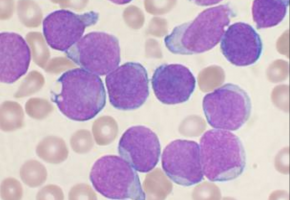
T-cell Acute Lymphoblastic Leukaemia (T-ALL) is a highly aggressive form of blood cancer that can occur in both children and adults.
It is characterised by failures in the maturation of T-lymphocytes, key immune cells involved in the defence against infections and cancer, which, instead of performing their function, proliferate uncontrollably in the bone marrow.
While the cure rate in children exceeds 80%, in adults it remains at around 40% and is associated with a high probability of relapse following chemotherapy.
However, advances in the field of immunotherapy, especially CAR-T cell treatments that show remarkable results in other blood cancers, have not yet reached T-ALL.
This is precisely because the cells affected are the same cells used in these therapies, T-lymphocytes.
Identifying markers that are in tumour lymphocytes and not in healthy T-lymphocytes, thus avoiding fratricidal attack, is particularly complicated.
Finding a way to distinguish leukaemic T-cells from healthy ones is just what Dr Pablo Menéndez's team at the Josep Carreras Leukaemia Research Institute has now achieved, with the support of Dr Diego Sánchez, ARAID researcher at the Aragon Health Research Institute, and the biotech company OneChain Immunotherapeutics, a spin-off of the Josep Carreras Institute.
Their research has demonstrated that the proteins CD1a and CCR9 are present in the leukaemic cells of most T-ALL patients, but are not appreciably expressed in healthy cells or other parts of the body.
Thanks to this discovery, published in the Journal of Haematology and Oncology, one of the leading journals in the field, the scientific team has been able to develop and test in the laboratory the first dual CAR-T cell therapy targeting T-ALL.
Experimental results show that these new CAR-T cells attack cells that express both CD1a and CCR9, as well as those expressing only one of the two, and that they can effectively control the disease in both in vitro and in vivo models.
The ability to target two antigens simultaneously makes this therapy significantly more effective than those focusing on only one, as demonstrated in the study.
It also broadens its applicability to patients with heterogeneous T-ALL, in which the expression levels of the two targets vary among leukaemic cells.
Moreover, unlike previous attempts, these new dual CAR-T cells targeting CD1a and CCR9 spare both healthy T lymphocytes and themselves, as well as other bone marrow cells, resulting in an excellent safety profile.
These findings, combined with previous evidence from the same research team and others internationally, open the door to the clinical development of what could become the first effective cell therapy against T-ALL in the medium term.
We are an independent charity and are not backed by a large company or society. We raise every penny ourselves to improve the standards of cancer care through education. You can help us continue our work to address inequalities in cancer care by making a donation.
Any donation, however small, contributes directly towards the costs of creating and sharing free oncology education.
Together we can get better outcomes for patients by tackling global inequalities in access to the results of cancer research.
Thank you for your support.